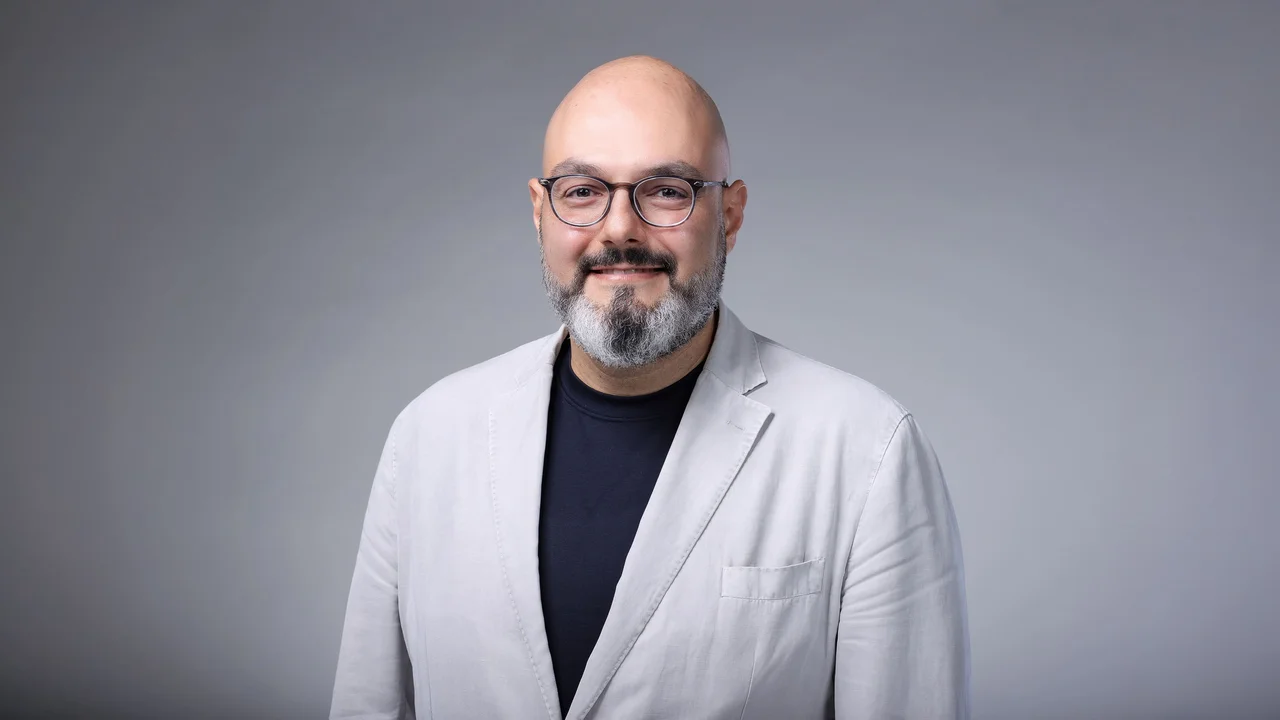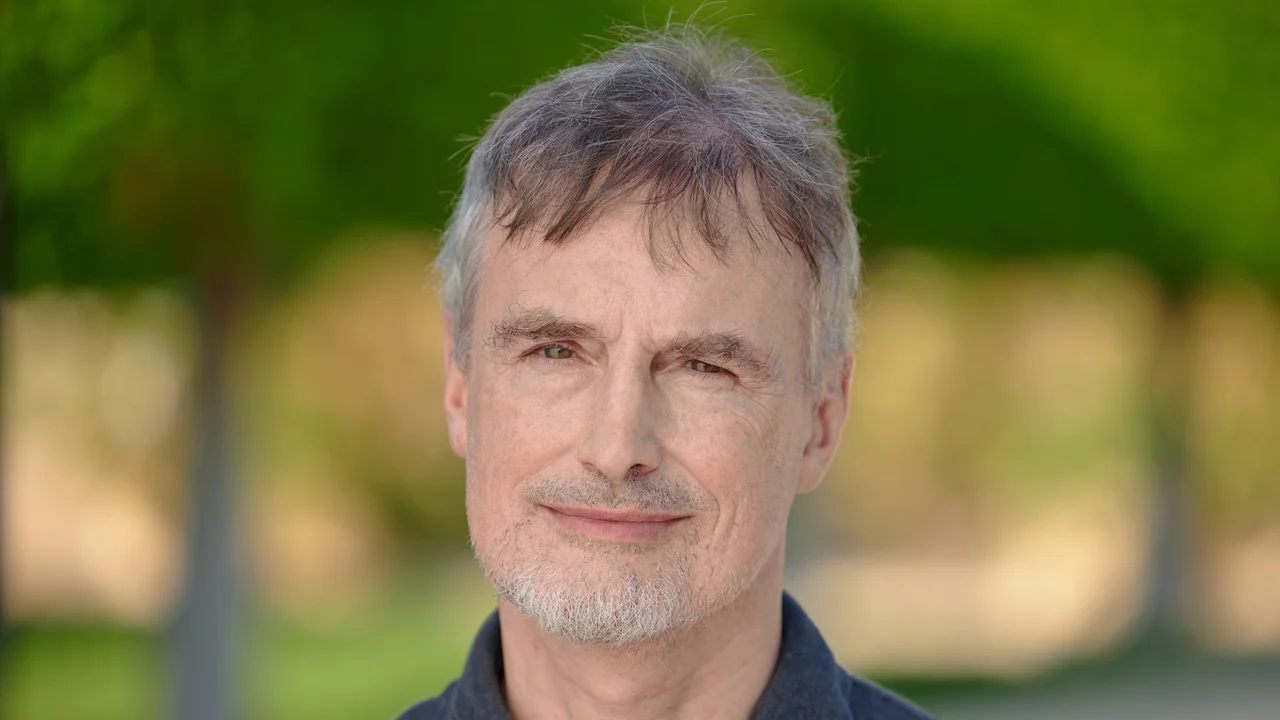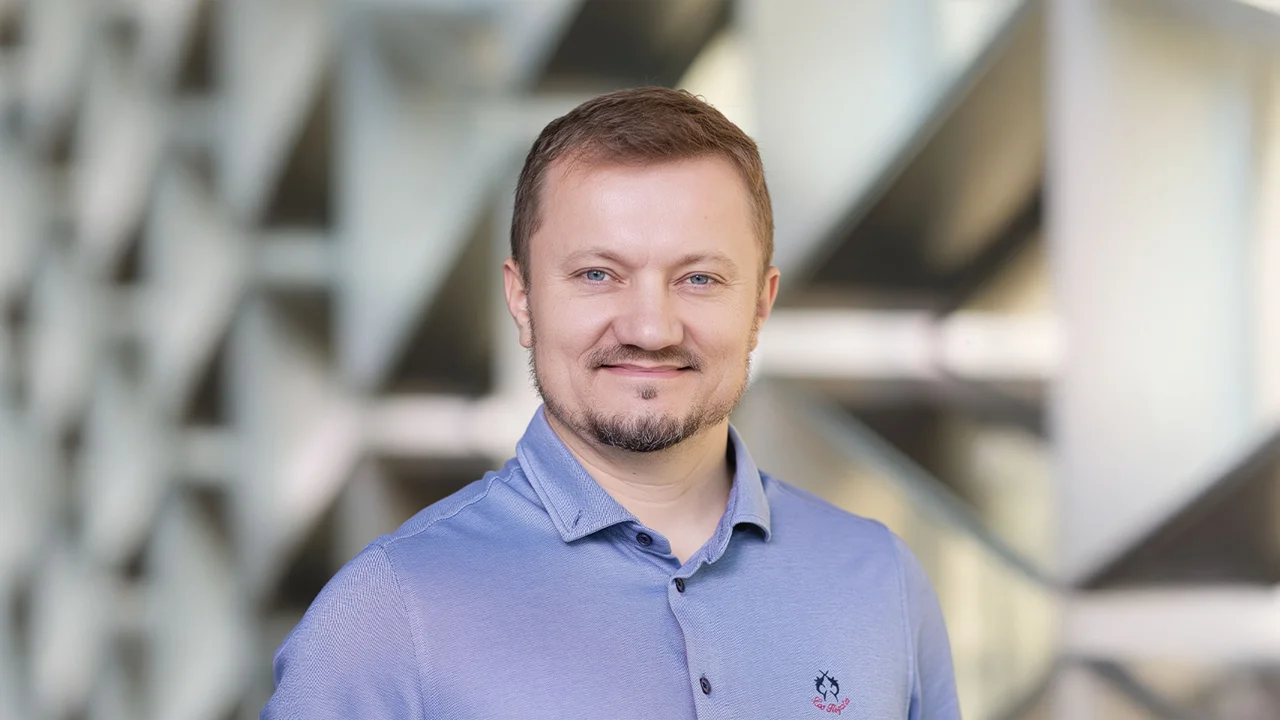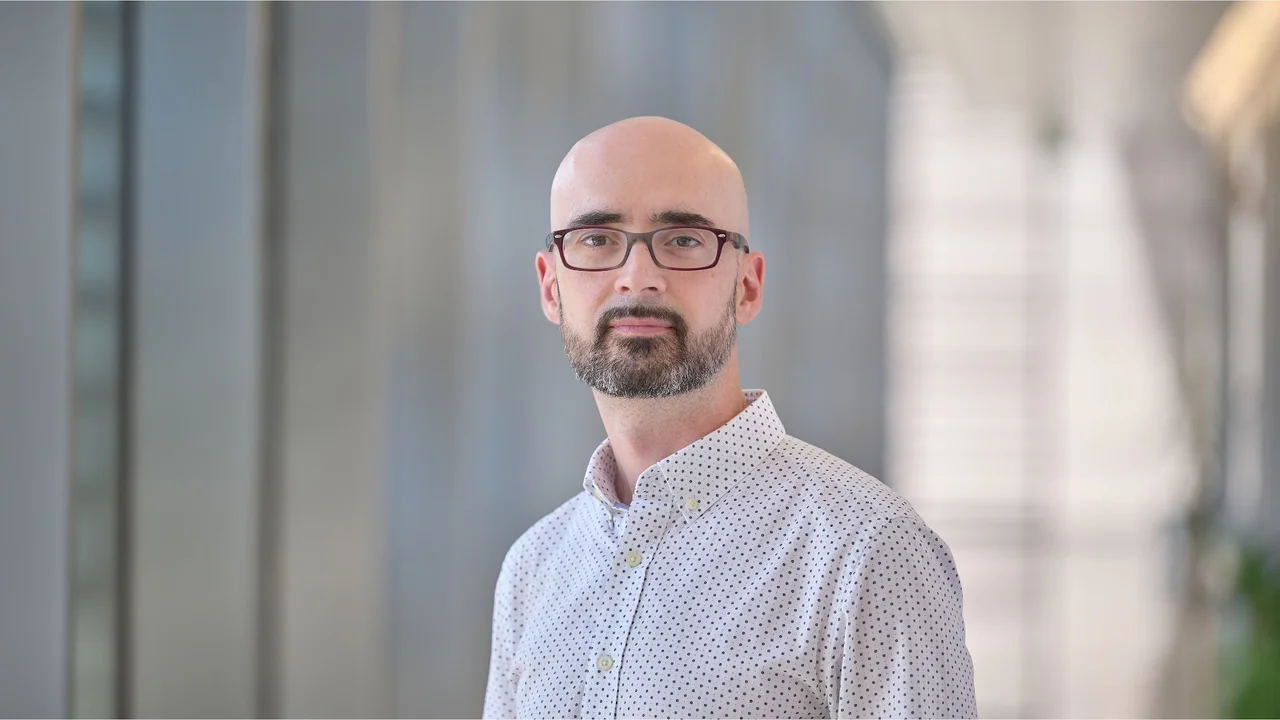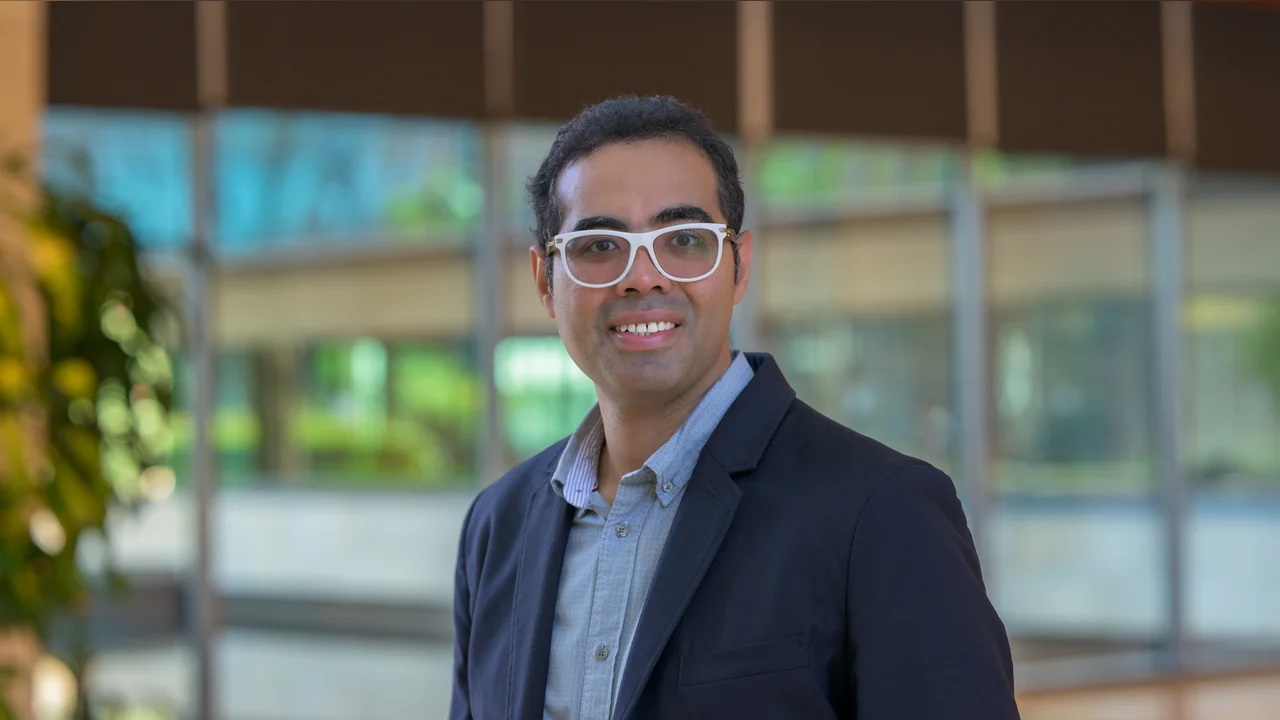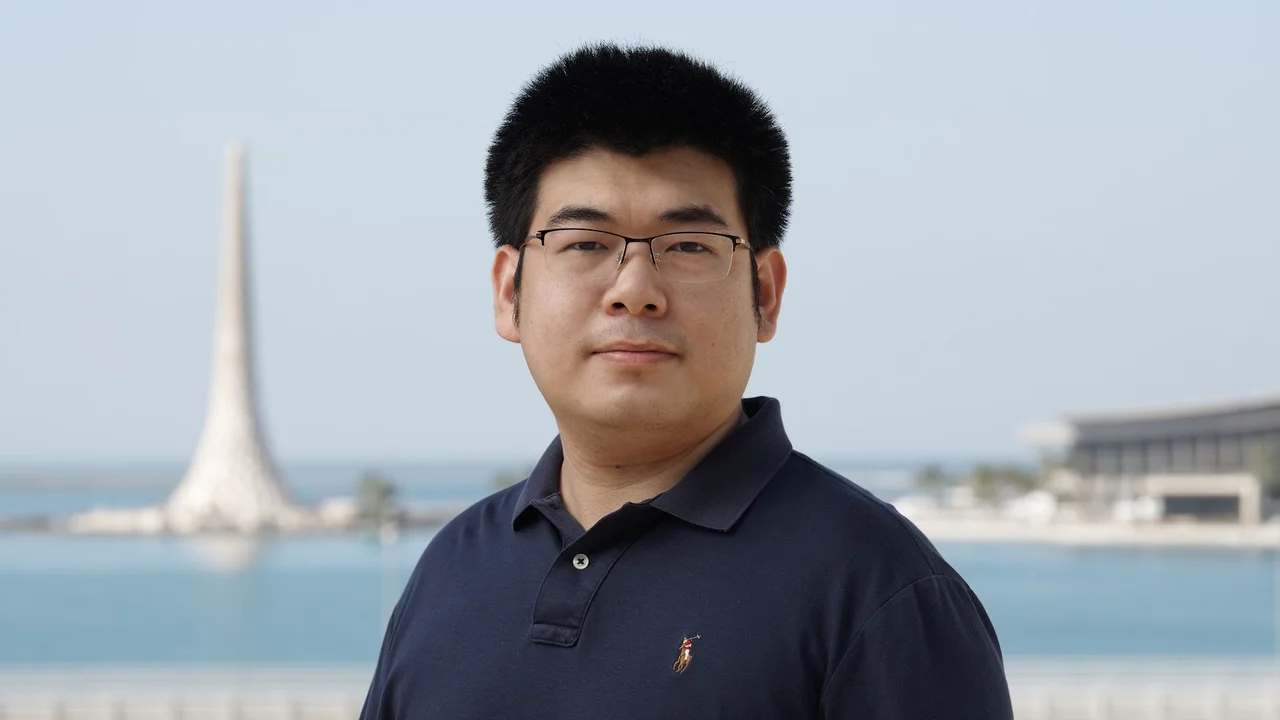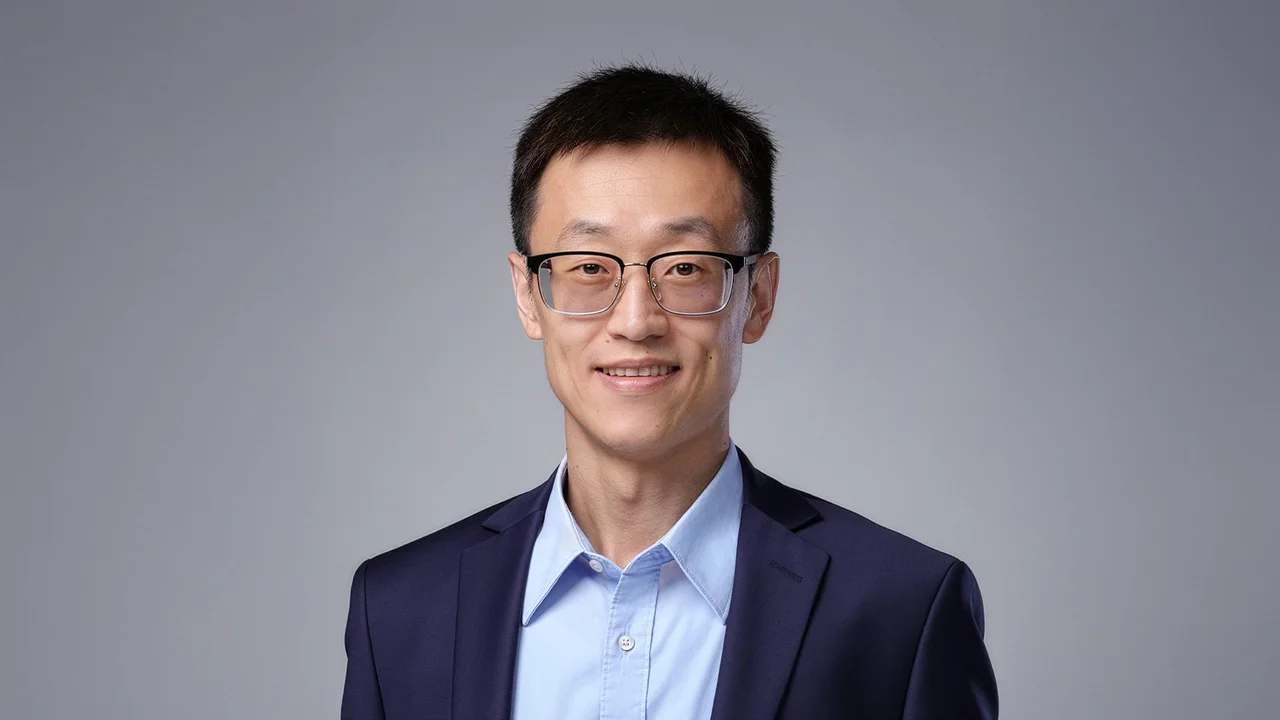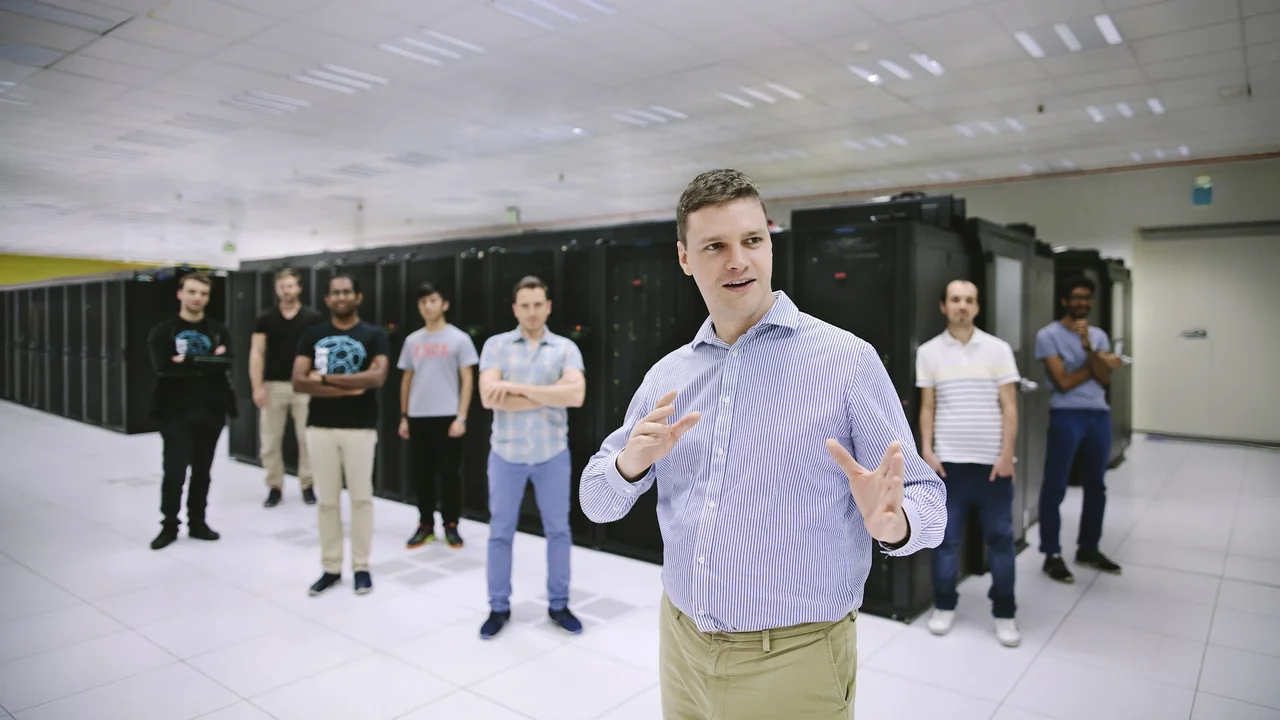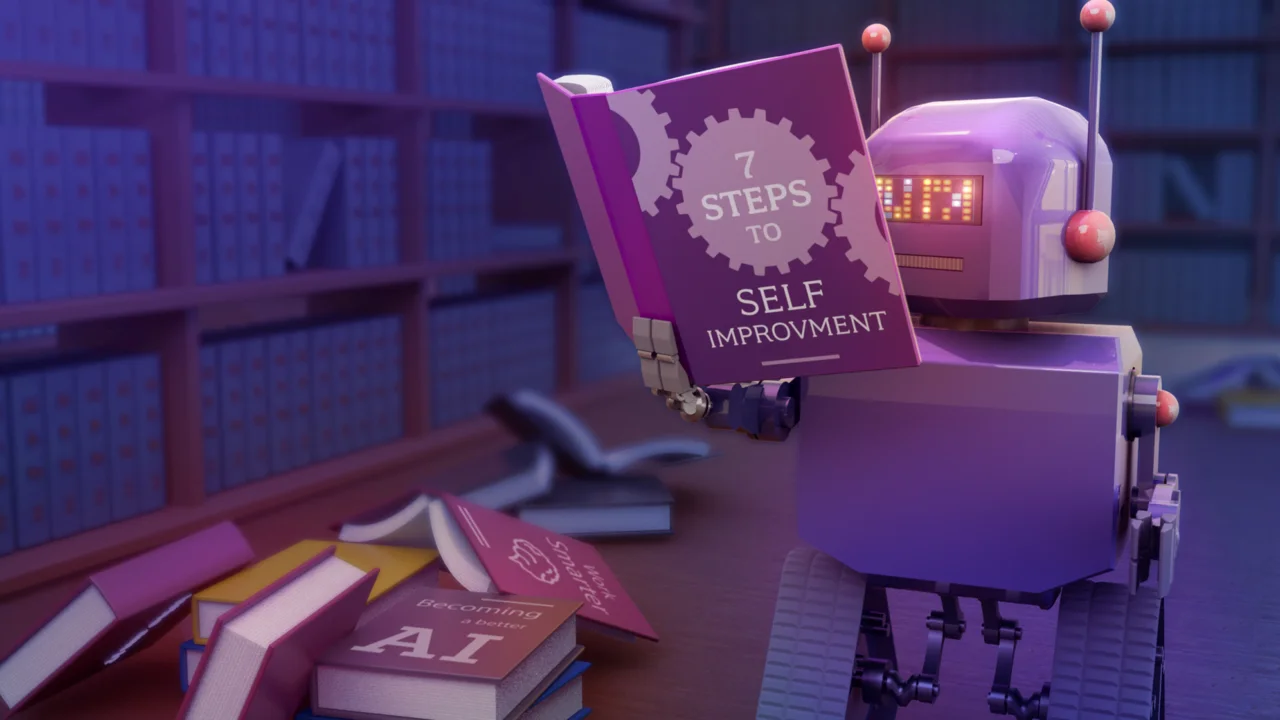
Artificial Intelligence and Machine Learning
The Computer Science (CS) program at KAUST is at the forefront of advancing Artificial Intelligence (AI) and Machine Learning (ML), with research spanning foundational theories and transformative applications. The program research spans the development of scalable, robust and efficient AI/ML models, driving innovations in areas such as neural networks, optimization and automated decision-making. This foundational research supports a wide range of AI applications across multiple sectors.
With the establishment of the KAUST Center of Excellence for Generative AI (GenAI), the CS faculty and researchers are uniquely positioned to further lead advancements in generative models and explore applications that are set to transform industries on national and global levels.
Related People
Biography
Professor Bernard Ghanem is the Chair of the KAUST Center of Excellence for Generative AI (GenAI) and a leading expert in computer vision and machine learning. He is a professor of Electrical and Computer Engineering (ECE) and the principal investigator of the Image and Video Understanding Lab (IVUL).
Ghanem's research focuses on computer vision and machine learning, particularly on large-scale video understanding, 3D scene comprehension and the foundation of machine learning.
At KAUST, Professor Ghanem's work bridges academic innovation and industry needs, advancing AI technologies through interdisciplinary collaborations. As Chair of the KAUST Center of Excellence for Generative AI, he leads efforts to establish world-leading excellence in GenAI research by developing the next generation of models that are efficient, trustworthy and tailored for widespread deployment.
His work supports solutions for the Kingdom's national Research, Development, and Innovation (RDI) priorities—Health and Wellness, Sustainability and Essential Needs, Energy and Industrial Leadership, and Economies of the Future—while accelerating the adoption of GenAI through translational research and talent development in collaboration with industry partners.
Professor Ghanem earned his Ph.D. in Electrical and Computer Engineering in 2010 and his M.Sc. in 2008, both from the University of Illinois at Urbana-Champaign (UIUC), U.S. He served as a graduate research assistant at the Computer Vision and Robotics Lab (CVRL) at the Beckman Institute for Advanced Science and Technology at UIUC.
Research Interests
Professor Ghanem’s research interests and expertise lie in:
- Robust, large-scale video understanding, including object tracking, activity recognition/detection, and retrieval.
- Visual computing for automation, including 3D object detection, 3D tracking, 3D indoor and outdoor navigation, and Sim2Real transfer learning.
- Development and analysis of foundational tools in computer vision and machine learning, including deep graph neural networks, neural network robustness and certification (Trustworthy AI), continual learning, and foundational models in vision and language.
Education
Biography
Jürgen Schmidhuber is the co-chair of the Center of Excellence for Generative AI (GenAI) at KAUST and a professor in the Computer Science Program.
His pioneering work in deep learning neural networks has shaped modern AI. The New York Times captured this influence with the headline: "When A.I. Matures, It May Call Jürgen Schmidhuber' Dad.'"
Between 1990 and 1991, he laid foundations of Generative AI by introducing the principles of Generative Adversarial Networks, the basis for deepfakes; unnormalised linear Transformers, embodying principles behind the "T" in ChatGPT; self-supervised Pre-Training for deep learning, e.g., for the "P" in ChatGPT; and neural network distillation, the “teacher–student” method that underpins efficient training and deployment of many modern AI models, including systems such as DeepSeek.
His lab developed Long Short-Term Memory (LSTM), the most cited AI of the 20th century, and the Highway Net, a variant of which has become the most cited AI of the 21st century.
He has pioneered meta-learning, machines that learn to learn, since 1987, and neural AIs that set their own goals since 1990. His formal theory of creativity, curiosity & fun (2006-2010) mathematically explains art, science, music, and humor.
His contributions became embedded in everyday technologies, underpinning large-scale deployment of AI systems in smartphones, speech recognition, and machine translation during the rapid expansion of consumer AI.
Before joining KAUST, he served as the Director of the Swiss AI Lab, IDSIA, and was a professor of Artificial Intelligence at the University of Lugano (USI) from 2009 to 2021.
Schmidhuber earned his doctorate in Computer Science from the Technical University of Munich (TUM), Germany, in 1991. He has co-founded various Swiss AI companies and authored over 400 peer-reviewed papers. He is a frequent keynote speaker and adviser on AI strategies to multiple governments.
At KAUST, Schmidhuber leads various AI research projects, contributes to the development of AI-related educational programs, and engages with public and private sector organizations in Saudi Arabia and globally.
Research Interests
Since his mid-teens, Schmidhuber's long-term ambition has been to build a self-improving AI that surpasses human intelligence, at which point he envisages stepping back, having achieved that goal. At KAUST, he works with many faculty members with research interests in AI. He spearheads research on AI applications across various fields, including health care, drug design, chemistry, materials science, natural language processing, automation, robotics, and soft robotics.
Education
Biography
Before joining KAUST in 2017, he was an Associate Professor of Mathematics at the University of Edinburgh, and held postdoctoral and visiting positions at Université Catholique de Louvain, Belgium, and University of California, Berkeley, USA, respectively. Richtárik obtained a Mgr. in Mathematics ('01) at Comenius University in his native Slovakia. In 2007, he received his Ph.D. in Operations Research from Cornell University, U.S. Dr. Richtarik is a founding member and a Fellow of the Alan Turing Institute (UK National Institute for Data Science and Artificial Intelligence), and an EPSRC Fellow in Mathematical Sciences.
A number of honors and awards have been conferred on Dr. Richtárik, including:
- the Best Paper Award at the NeurIPS 2020 Workshop on Scalability, Privacy, and Security in Federated Learning (joint with S. Horvath);
- the Charles Broyden Prize, a Distinguished Speaker Award at the 2019 International Conference on Continuous Optimization, the SIAM SIGEST Best Paper Award (joint with O. Fercoq);
- the IMA Leslie Fox Prize (second prize, three times, awarded to two of his students and a postdoc);
- the SIAM SIGEST Best Paper Award (joint award with Professor Olivier Fercoq);
- the IMA Leslie Fox Prize (Second prize: M. Takáč 2013, O. Fercoq 2015 and R. M. Gower 2017);
- the INFORMS Computing Society Best Student Paper Award (sole runner-up: M. Takáč);
- the EUSA Award for Best Research or Dissertation Supervisor (Second Prize), 2016;
- and the Turing Fellow Award from the Alan Turing Institute, 2016.
Before joining KAUST, he was nominated for the Chancellor’s Rising Star Award from the University of Edinburgh in 2014, the Microsoft Research Faculty Fellowship in 2013, and the Innovative Teaching Award from the University of Edinburgh in 2011 and 2012.
Dr. Richtárik has given more than 150 research talks at conferences, workshops and seminars worldwide. And several of his works are among the most read papers published by the SIAM Journal on Optimization and the SIAM Journal on Matrix Analysis and Applications.
Dr. Richtárik regularly serves as an Area Chair for leading machine learning conferences, including NeurIPS, ICML and ICLR, and is an Action Editor of the Journal of Machine Learning Research (JMLR), Associate Editor of Optimization Methods and Software and Numerische Mathematik, and a Handling Editor of the Journal of Nonsmooth Analysis and Optimization. In the past, he served as an Action Editor of Transactions of Machine Learning Research and an Area Editor of Journal of Optimization Theory and Applications. He was an Area Chair for ICML 2019 and a Senior Program Committee Member for IJCAI 2019. And he is an Associate Editor of Optimization Methods and Software and a Handling Editor of the Journal of Nonsmooth Analysis and Optimization.
Research Interests
Professor Richtárik’s research interests lie at the intersection of mathematics, computer science, machine learning, optimization, numerical linear algebra, and high-performance computing. Through his work on randomized and distributed optimization algorithms, he has contributed to the foundations of machine learning, optimization and randomized numerical linear algebra. He is one of the original developers of Federated Learning – a new subfield of artificial intelligence whose goal is to train machine learning models over private data stored across a large number of heterogeneous devices, such as mobile phones or hospitals, in an efficient manner, and without compromising user privacy. In an October 2020 Forbes article, and alongside self-supervised learning and transformers, Federated Learning was listed as one of three emerging areas that will shape the next generation of Artificial Intelligence technologies.
His recent work on randomized optimization algorithms—such as randomized coordinate descent methods, stochastic gradient descent methods, and their numerous extensions, improvements and variants)—has contributed to the foundations and advancement of big data optimization, randomized numerical linear algebra and machine learning.
Education
Biography
Professor Francesco Orabona is a leading researcher in parameter-free online optimization. He joined KAUST from Boston University's Department of Electrical & Computer Engineering. Orabona earned his B.Sc. and M.S. in electrical engineering in 2003 from the University of Naples "Federico II", Italy, and his Ph.D. in electrical engineering in 2007 from the University of Genoa, Italy.
Prior to joining KAUST, he held positions at several institutions including, Stony Brook University, Yahoo Research, the Toyota Technological Institute at Chicago (TTIC), the University of Milan and the Idiap Research Institute in Switzerland.
He has served as an area chair for several leading conferences, including the Conference on Neural Information Processing Systems (NeurIPS), the International Conference on Machine Learning (ICML), the Conference on Learning Theory (COLT) and the International Conference on Learning Representations (ICLR). Since 2022, he has been an associate editor of the IEEE Transactions on Information Theory.
Research Interests
Professor Orabona's research combines practical and theoretical machine learning approaches. His research interests encompass online learning, optimization and statistical learning theory.
In his current research, he is researching "parameter-free" machine learning algorithms that function effectively without the use of expensive hand-tuned parameters.
Education
Biography
Mohamed Elhoseiny is an associate professor in the Computer Science (CS) Program at KAUST, a senior member honoree of AAAI and IEEE, and the principal investigator of the KAUST Vision-CAIR Research Group. Before joining KAUST, he was a visiting faculty member at Stanford Computer Science Department, a visiting faculty member at Baidu Research, and a postdoctoral researcher at Facebook AI Research.
Elhoseiny earned his Ph.D. in 2016 from Rutgers University. He received a B.Sc. degree in 2006 and an M.S. degree in 2010, both in computer systems from Ain Shams University.
His work has received numerous recognitions, including third place at the Data+AI Summit hackathon at San Francisco held in May 2024 (200 participants) with a multimodal LLM hack called HomeGPT. He was selected as an MIT 35 under 35 semi-finalist in 2020. He received the Best Paper Award at the 2018 European Conference on Computer Vision (ECCV) Workshop on Fashion, Art, and Design for his research "DesIGN: Design Inspiration from Generative Networks." He also received the Doctoral Consortium Award at the 2016 Conference on Computer Vision and Pattern Recognition (CVPR) and an NSF Fellowship for his "Write-a-Classifier Project" in 2014. His research on creative art generation has been featured in New Scientist Magazine and MIT Technology Review, which also highlighted his work on lifelong learning.
Professor Elhoseiny’s contributions include zero-shot learning, which was featured at the United Nations, and his creative AI work was featured in MIT Technology Review, New Scientist Magazine, Forbes Science, and HBO's Silicon Valley. He has served as an Area Chair at major CV/AI conferences, including CVPR21, ICCV21, IJCAI22, ECCV22, ICLR23, CVPR23, ICCV’23, NeurIPS23, ICLR’24, CVPR’24, ECCV’24, SG Asia’24, and has organized Closing the Loop Between Vision and Language workshops at ICCV’15, ICCV’17, ICCV’19, ICCV’21, ICCV’23.
He has been involved in several pioneering works in affective AI art creation and has authored or co-authored numerous award-winning papers.
Research Interests
His primary research interests are in computer vision, focusing on efficient multimodal learning with limited data in zero- and few-shot learning, and Vision and language. He is also interested in Affective AI and especially in understanding and generating novel visual content, such as art and fashion.
Education
Di Wang
- Assistant Professor, Computer Science
Biography
Di Wang is an assistant professor in the Computer Science Program and an adjunct professor in the Statistics Program within the Computer, Electrical and Mathematical Sciences and Engineering (CEMSE) Division at KAUST. He earned his Ph.D. in computer science and engineering from the State University of New York at Buffalo, his M.S. in mathematics from Western University, and his B.S. in mathematics from Shandong University.
His research focuses on privacy-preserving machine learning, interpretability, machine learning theory, and trustworthy machine learning. During his Ph.D. studies, he was invited as a visiting student to the University of California, Berkeley; Harvard University; and Boston University. He has also served as a visiting professor at the University of Helsinki, Inria, and the Finnish Center for Artificial Intelligence.
Wang has received the SEAS Dean’s Graduate Achievement Award and the Best CSE Graduate Research Award from SUNY Buffalo.
Research Interests
Professor Wang’s research interests include machine learning (ML), security, theoretical computer science and data mining. His overall research focuses on solving issues and societal concerns arising from ML and data mining algorithms, such as privacy, fairness, robustness, transferability and transparency.
His PART team develops accurate learning algorithms that are equally private, fair, explainable and robust. These algorithms are supported by rigorous mathematical and cryptographic guarantees.
His research includes three perspectives: theory, practice and system. The theoretical component of his work provides rigorous mathematical guarantees for PART’s algorithms. The practical part develops trustworthy learning algorithms for biomedical, health care, genetic and social data, with a final focus on deploying trustworthy learning systems for healthcare and other applicable industries.
Education
Biography
Dr. Gao received his B.A. in Computer Science in 2004 from Tsinghua University, China, and his Ph.D. in Computer Science in 2009 from the David R. Cheriton School of Computer Science at the University of Waterloo, Canada. Before joining KAUST, he served as a Lane Fellow at the Lane Center for Computational Biology at Carnegie Mellon University, U.S., from 2009 to 2010.
He is the Associate Editor of numerous journals, including Bioinformatics, npj Artificial Intelligence, Journal of Translational Medicine, Genomics, Proteomics & Bioinformatics, Big Data Mining and Analytics, BMC Bioinformatics, Journal of Bioinformatics and Computational Biology, Quantitative Biology, Complex & Intelligent Systems, and the International Journal of Artificial Intelligence and Robotics Research.
Gao has co-authored more than 400 research articles in bioinformatics and AI and is the lead inventor on over 60 international patents.
Research Interests
Professor Gao's research interest lies at the intersection between AI and biology/health. His research focuses on building novel computational models, developing principled AI techniques, and designing efficient and effective algorithms. He is particularly interested in solving key open problems in biology, biomedicine, health and wellness.
In the field of computer science, he is interested in developing machine learning theories and methodologies related to large language models, deep learning, probabilistic graphical models, kernel methods and matrix factorization. In the field of bioinformatics, he works on developing AI solutions to key open problems along the path from biological sequence analysis, to 3-D structure determination, to function annotation, to understanding and controlling molecular behaviors in complex biological networks, and to biomedicine and health care. He is a world-leading expert on developing novel AI solutions for challenges in biology, biomedicine, health and wellness, in particular AI-based drug development, large language models in biomedicine, biomedical imaging analysis, and omics-based disease detection and diagnostics.
Education
Biography
Marco Canini is a Professor of Computer Science at KAUST. He obtained his Ph.D. in computer science and engineering in 2009 from the University of Genoa, Italy, after spending the last year of his degree as a visiting student at the University of Cambridge, U.K.
He holds a Laurea Degree with Honors in Computer Science and Engineering from the University of Genoa. He was a postdoctoral researcher at the École polytechnique fédérale de Lausanne (EPFL), Switzerland, from 2009 to 2012. He then worked as a senior research scientist at Deutsche Telekom's Innovation Labs and the Technical University of Berlin, Germany, for one year.
Before joining KAUST, Canini was an assistant professor of computer science at the Université catholique de Louvain, Belgium. He has also held industry positions with Intel, Microsoft, and Google.
Research Interests
Professor Canini‘s research interests center on the principled construction and operation of large-scale networked computer systems; in particular, the development of Software-Defined Advanced Networked and Distributed Systems (SANDS).
His research spans a number of areas in computer systems, including distributed systems, large-scale/cloud computing and computer networking with emphasis on programmable networks.
Canini’s current work focuses on improving networked systems design, implementation and operation along several vital properties such as reliability, performance, security and energy efficiency.
